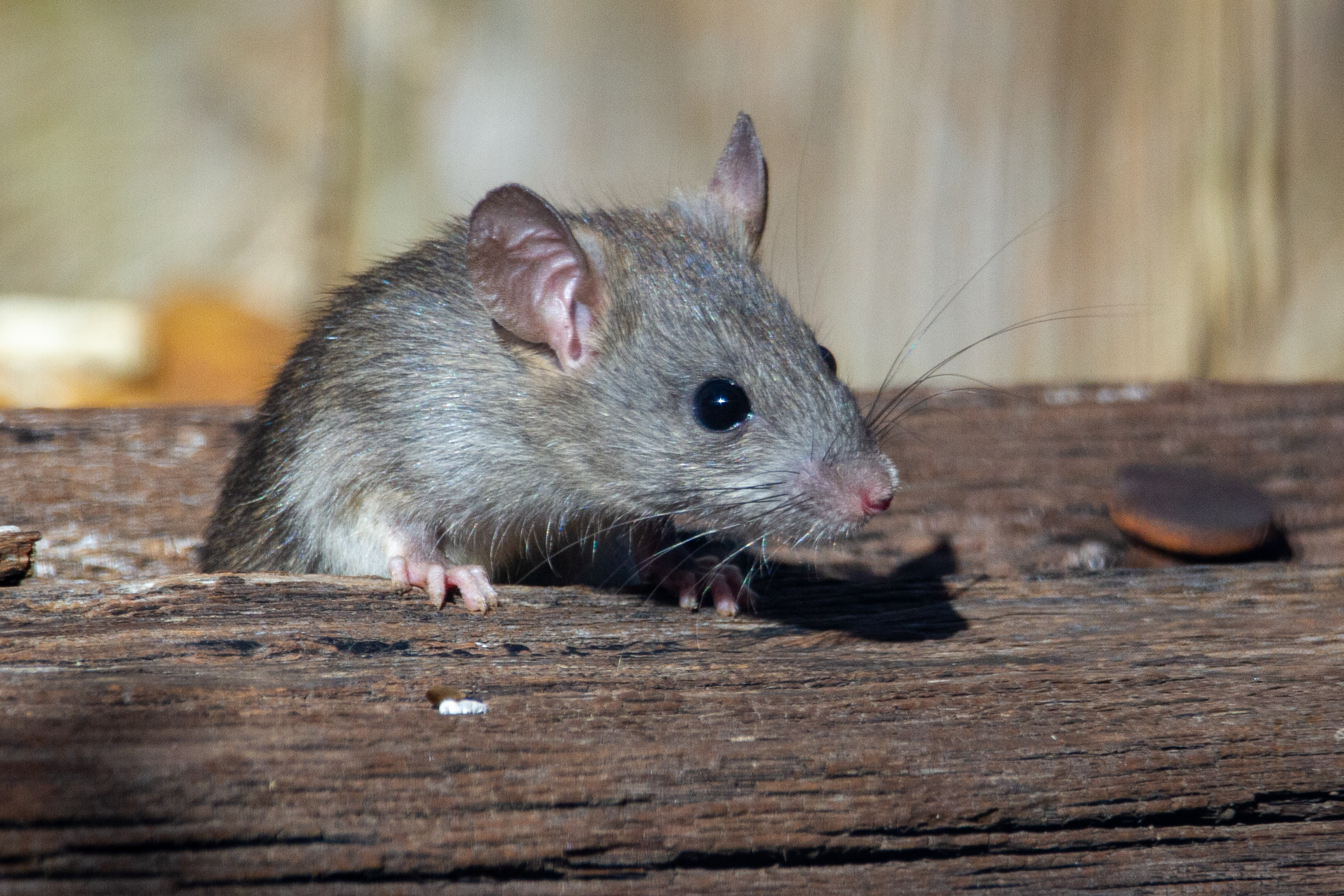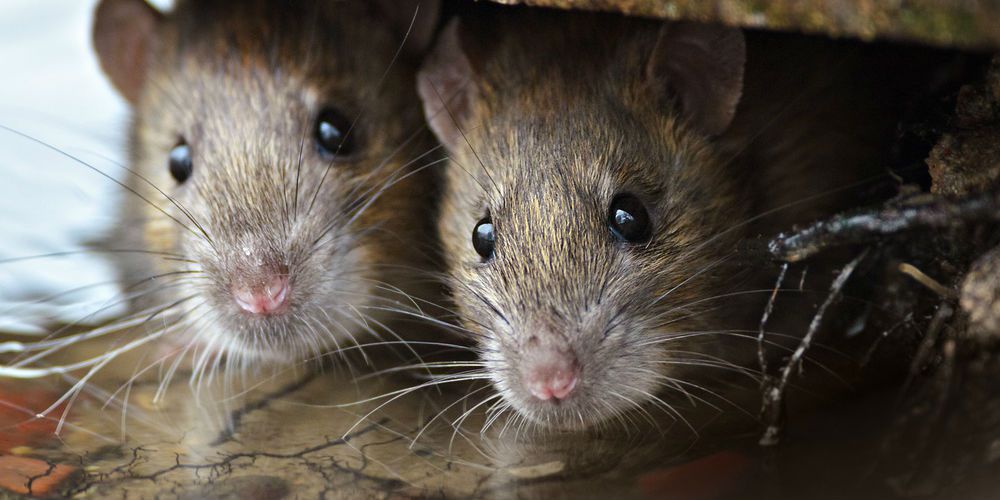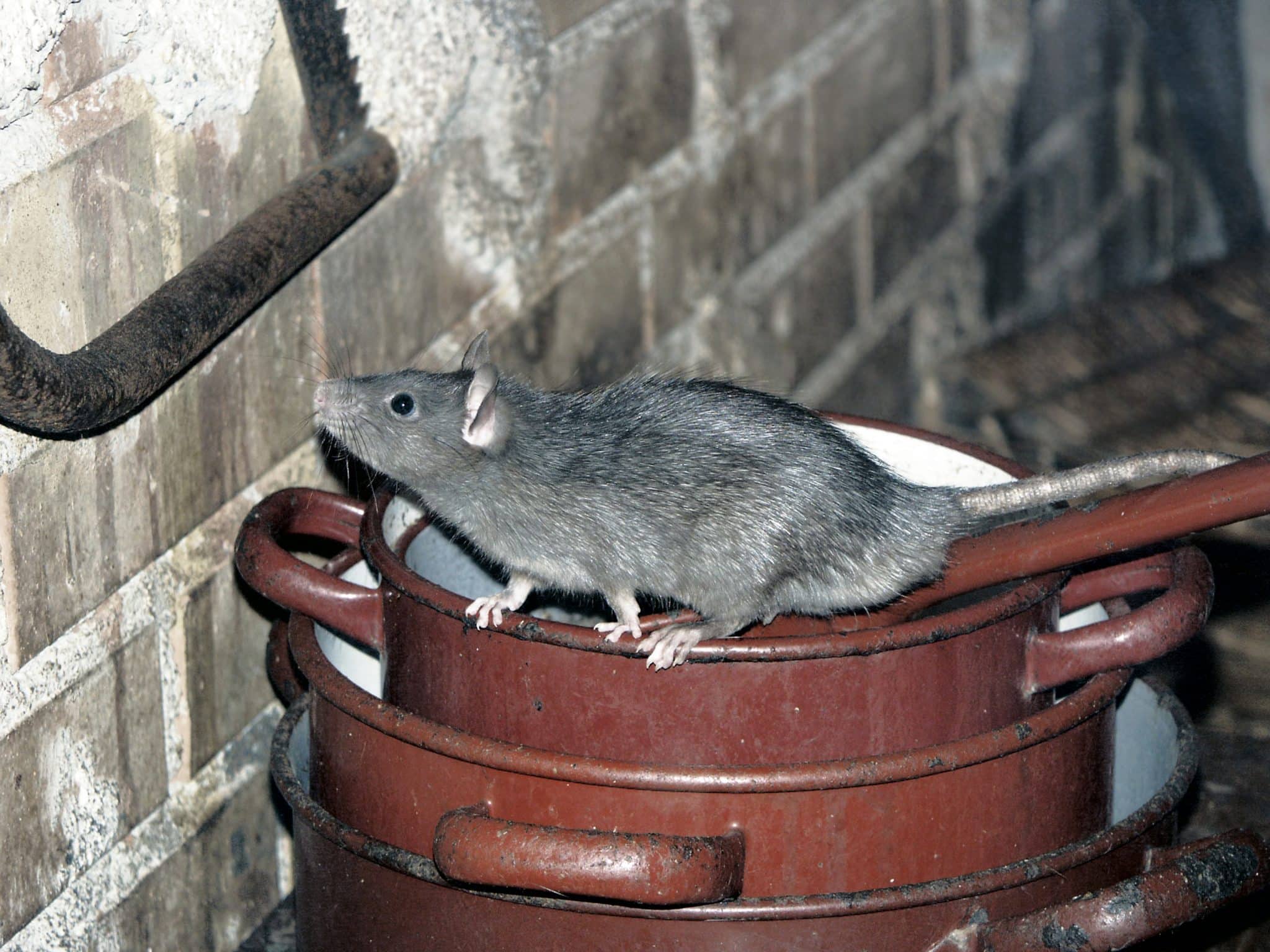Rats are one of the most persistent and dangerous household pests to encounter, and it’s important to do everything you can to get rid of an infestation. Rats carry diseases, pose a major health risk to those in the house, and can cause expensive damage to your house. From wild rats to brown rats, it’s important to act quickly and effectively when you notice the signs of an infestation. It is important to follow these tips in this article in order to eliminate rats, protect yourself from zoonotic diseases, and prevent a larger rodent problem.
Basic Tips to Eliminate Rats
Rats are clever animals and are adept at avoiding bait and traps. To control them, you’ll have to know where and how to place the traps, and poisons can pose health risks to those in the house. Because rats are persistent, the only 100% sure way to get rid of a rat infestation is by utilizing the services of a pest control professional.
Don’t take a sighting lightly, if you see a few rats or notice the rat’s pellet shaped droppings there are likely many other rats infesting your home. Pest control professionals are experts at understanding rat behavior and will reduce populations to make sure that the rat problem is eliminated successfully. However, there are some basic and simple steps you can take along with professional help that will mitigate the issue and stop them from spreading diseases.

Top Ten Ways to Eliminate a Rat Population
The following tips are simple ways you can begin to get rid of infestations. While waiting for the experts to come or after they have visited, it’s smart to keep these tips in mind to help disease, control rats, and keep them from returning.
Tip #1: Know the Signs of an Infestation
The first step to prevent rats from living in your house and discourage rats from settling in is to notice the signs they leave. If you see a dead rat, droppings, or notice damage to your food supplies, you likely already have a worse problem than you realize.
Tip #2: Use Rat Poison
Many stores sell commercial poison that can be used to prevent rodents from returning. To stop problems, use them at entry points, wherever you see material that rats prefer like shredded paper, or anywhere else you notice signs of an infestation. However, this can create contaminated materials and pose human health hazards, so use them carefully and be sure to keep children and pets away from the poison.
Tip #3: Seal Entry Points
One of the first ways to keep rats from returning is by making sure they can’t get back in your house. To do this, examine the outside closely and look for any small holes, grease marks along the walls, or any utility entry holes for pipes or wires. These are likely how they entered your house, and you should seal them with metal kick plates, caulk, wood, or another material that they won’t be able to get through.
Tip #4: Understand Different Types of Rats
To effectively deal with a rodent infestation, you have to understand which type you are dealing with. The two most common types found in North American homes are roof rats and Norway rats.
Norway rats are also known as sewer rats, water rats, or a wharf rat. The Norway rat, or rattus norvegicus, can spread diseases and poses many risks to human health. Roof rats are also called black rats or ship rats, and mainly inhabit the Southwest of the country. Some other types of rats that can less commonly pose an issue are escaped pet rats, lab rats, an albino rat, or various other types of wild rats.
Tip #5: Make Your House Unattractive to Rats
Unfortunately, rodent droppings can be tiny and disguised by an unclean space. It is important to ensure that you recognize if the area you are seeing rodent activity is due to food sources that are being left out. For example, if you are findings rats in your kitchen, then you may have to ensure that the area is cleaned thoroughly each night.
Another thing to consider is leaving pet food out can draw rodents, and really, any food source for you or other animals is a food source for these intelligent rats. In other words, all types of food are attractive to rats, so you need to keep your spaces free of crumbs, as well as your food locked away where rats and other rodents can’t easily access it.
Remember that rats can squeeze through tiny spaces that you wouldn’t expect, and they can even chew holes through a weak wall to enter a space. At some point, you may want to consider getting a professional to come and evaluate the spaces in your home or office to see if there are potential entry points that you did not consider. Believe it or not, if you sprinkle crushed pepper around a space, many rats will flee.
Tip #6: Set Proper Traps
According to scientific research, the CDC recommends trapping rodents to reduce their population and to stop them from giving people diseases that can cause bacterial infections, like “rat bite fever.”
When choosing rat traps, remember that they prefer chunky peanut butter or mutton, and you want to choose an area where you see the most signs of them. It is important to note that rats have poor eyesight and make sounds outside the range of human hearing, so you want to make sure you pay attention to areas where they navigate the most, as they try to stick to similar routes and paths where they can rely on their sense of smell.
While kids’ TV shows may make setting up traps to stop rats look easy, if you have set many up and you are still not successful, your methods are incorrect and it may be time to ask a professional for help.

Tip #7: Consider Lethal Methods
For some, they have tried every type of trap out there, and they still cannot get rid of the problem. There might be a point to consider seeking other methods because when rat problems get out of control dangerous diseases can spread. Luckily, scientists have studied laboratory rats to investigate rat models for the best and most humane ways to use lethal methods on them.
Through these visualized experiments, they have investigated molecular biology and how diseases spread, as well as how rats reproduce effectively. When rat traps don’t work, then it is time to acknowledge that you have a rat problem, and it is time to seek other means of control.
Rodenticides can be used for rat infestation; however, one must be very careful to keep these types of poisons away from animals and children. The strongest and most effective rat poisons used against genus rattus animals usually contain bromadiolone or difethialone as their active ingredient. It is also better to use slow-acting poison as it will not deter other rats from falling for the bait, as they will not be eating food that kills rats around them.
In the end, it is always best to seek a professional when using lethal methods with rat populations, as these can be dangerous. Professionals will know exactly what to use with specific rat populations, and there’s no substitute for expertise.
Tip #8: Understanding Invasive Rats
Another important factor to consider is if you are dealing with an invasive rodent. The brown rat is considered an invasive rat because it infests human homes, unlike its wild counterparts. A black rat is also an invasive species because it exhibits the same traits.
Tip #9: Remove Nesting Material
A wild rat will always build a nest, and invasive rats in your home have the same behavior. Those who study rats will tell you that one of the easiest ways to keep wild rats from settling in your home is to never leave any common materials laying around like newspapers, cardboard, or other soft, easy-to-chew materials like these.
Tip #10: Eliminate Hiding Places
Laboratory rats always seek shelter, and rats in your house will act the same as a lab rat. Female rats or any other type of rat model will always find a dark, secluded place to nest. You can prevent this in your house by removing clutter, not leaving boxes around, moving objects away from the walls, or storing items in storage containers with tight lids or off the floor.
If you think you have an infestation because you’ve seen the tell-tale signs like tail marks or droppings, or you’ve heard the scratching noises they make in the walls, don’t panic! Professionals with a lot of experience can easily and quickly help you deal with the problem, and following these tips will prevent the rats from returning.
These rat infestations can be caused by many issues, and aren’t your fault. All you have to do is schedule an appointment with a company and you will be well on your way to dealing with it.








